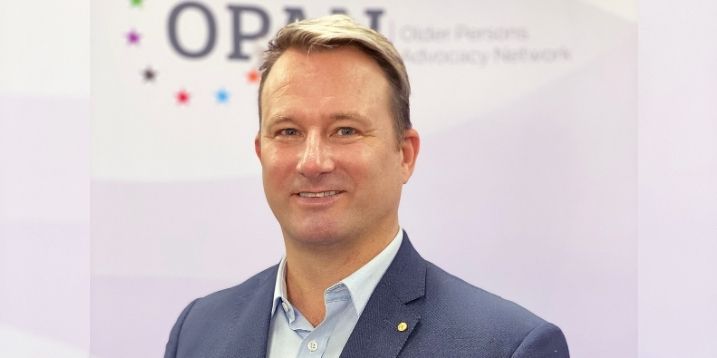
Why is ACP important to people in the OPAN community?
The Older Persons Advocacy Network, OPAN, exists to ensure older people's rights and wishes are upheld as they interact with federal government-funded aged care services. Advance care planning is a means of capturing your desires and values so that you have control over what treatment you want if, for whatever reason, you can't make those decisions. Advance care planning is one part of ensuring older people's wishes are heard and respected, and they maintain control and independence over their lives.
Why do you think so few people engage with ACP?
It can be challenging to think about decisions we may face as we get older or the decisions someone else might have to make on our behalf, and these are difficult conversations to have with people we love.
It can take a crisis before considering what we want for our future care, which can be too late to take action. In recent research, we found most people are uncomfortable thinking about aged care for themselves, regardless of their stage in their lives. Those findings suggest more work must be done to normalise conversations about advance care planning to respect and uphold older people's rights.
Have you had ACP conversations with your family/loved ones?
I am having advance care planning and power of attorney conversations with my Dad now. He's just been told he has a life-limiting illness that may be degenerative and has been given a prognosis of about a decade.
While that is a way off, it is still confronting. We sat down recently to talk through different scenarios, what he wants, and how he wants me to act in line with his wishes.
Our conversation began with legal guardianship, but the advance care planning quickly became the focus as I want to know what will work best for him. Being an enduring guardian, the term used in New South Wales is a privileged position. It is up to me to communicate effectively with him, so I can work on his behalf and with his direction if it comes to that. I hope I won't need to do that for a long time, but if I do, I know how to work on Dad's behalf without second-guessing him or myself.
What advice would you give to a person starting or contemplating ACP?
Mum, Dad and I had conversations at the beginning of the COVID-19 pandemic, making it a lot easier to keep the conversation going. I wanted to know if the worst-case scenario played out during the pandemic, what did they want me to do to protect their choices and rights. My Mum said she wanted intervention and intensive care, while my Dad favoured conservative measures only. My advice is to get the conversation going. Talk with your loved ones early, often, and work together to build an advance care plan over time.
It is so important that we consider how we want to live in any a variety of future scenarios, the type of care we wish to receive, who we want making decisions about our care if, for whatever reason, we can't. Talk about it with the people closest to you and who you trust, like friends, loved ones, carers or your doctor.
What do you think are the biggest misconceptions around ACP?
We know that people fear and believe their choices won't be respected or followed. Putting an advance care plan in place is the best way to ensure that your wishes and rights are respected and pursued.
I also recognise some people may view an advance care plan as meaning their loved ones or carers will be less proactive about keeping them healthy and alive. That is not the case if you've been clear about what you want or don't want. It's the best way to communicate your wishes and preferences before reaching a point where it may be harder for you to do so yourself.
What strategies or approaches do you think would help improve ACP uptake in Australia?
We would love to see advance care planning considered alongside the planning we do at any stage of our lives, like growing our superannuation, thinking about retirement, or preparing a will. Normalising conversations about what care we want in the future is critical to having agency and control at any stage of our lives. Embedding advance care planning into other aspects of our lives is one way of improving uptake.
We also need mandatory training for all aged care workers and health professionals directly linked to advance care planning. In circumstances where someone has cognitive impairment, there are means to plan in line with an older person's wishes via existing supported decision-making models.